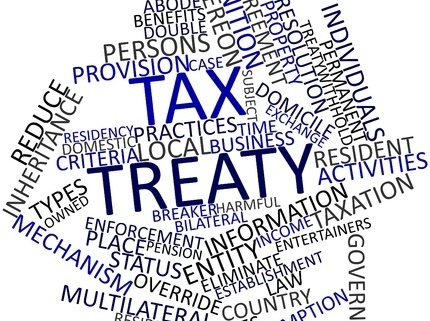Canadian businesses and individuals who make sales or provide services to U.S.-based clients or customers are considered to have income that is “effectively connected with the conduct of a trade or business in the United States”. Under U.S. domestic tax law non-residents who carry on a U.S. trade or business are subject to U.S. taxation at the federal and possibly state levels.
Articles V and VII of the Canada-U.S. Income Tax Convention (the “Treaty”) provide an exception from U.S. federal income tax as long as the income of a Canadian sales or service provider is not attributable to a U.S. permanent establishment (“PE”). A PE is defined as a fixed place of business through which a non-resident carries on business and may include a place of management, a branch, an office, a factory or workshop, a place of extraction of natural resources (such as a mine), a building, construction or installation project lasting more than 12 months, use of an installation or drilling rig or ship for the exploration or exploitation of natural resources for more than 3 months in any 12 month period, or an independent contractor or employee acting regularly in the U.S. and possessing the authority to conclude contracts. In addition, a PE may be considered to exist if a service provider or an employee is present in the U.S. for over 182 days in any 12-month period, and during such period more than 50% of the gross active business income is derived from the said services, or if a service provider spends in the U.S. over 182 days in any 12-month period with respect to the same or connected project for customers who are either residents of the U.S. or maintain a PE in the U.S. (and the services are performed in respect of that PE.)
To claim relief under the Treaty from U.S. federal taxation on U.S. income by reason of an absence of a U.S. PE, the service provider must timely file a Treaty-Based Position Disclose Under Section 6114 or 7701(b) with the Internal Revenue Service (“IRS”) using Form 8833 along with either personal or corporate U.S. income tax return for non-resident/foreign corporation on Forms 1040NR or 1120-F. Failure to file a treaty-based position disclosure could result in the loss of a benefit of tax deductions to the filer, i.e. the filer becomes subject to taxation on U.S. gross revenue.
The deadline for a U.S. income tax return with a treaty-based position disclosure is the 15th day of the 6th month following the end of the fiscal or calendar year of the filer. An additional 6-month extension of time to file is available for foreign corporate filers and a 4-month extension for foreign individual filers by filing of an extension request on or before the original due date.
Penalties for failure to file and disclose a treaty-based position vary from $1,000 to $10,000 per type of filer – individual or corporation – and are imposed on each non-disclosed type of income.



